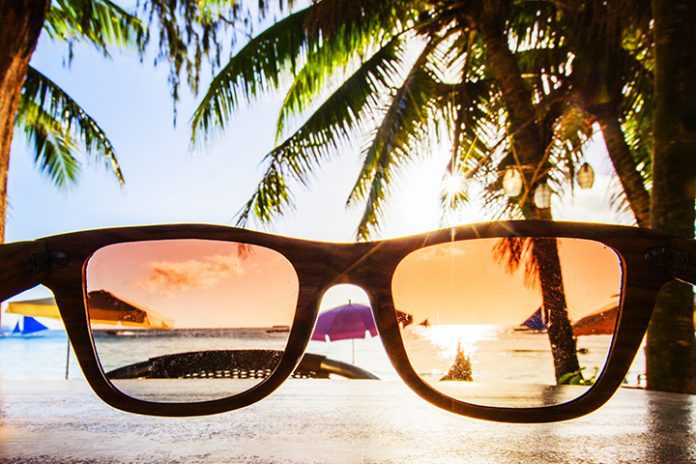Whether you have perfect “20/20” vision or your eyesight requires a bit of correction, ocular health is a concern that we should all look at from time to time.
Summer brings additional considerations for your eyes. Enjoying time in the sun is a joy of the season, but it can be hazardous for your peepers.
“The main threat of ultraviolet exposure from the sun is damage to the retina, though there is evidence that cataract progression is related to sun exposure as well,” says Marc Goldberg, an ophthalmologist and retinal surgeon at the Eye Institute in Tulsa.
Another threat from sun exposure is not as readily apparent as those two problems.
“The skin is prone to skin cancers, so protection with sunglasses is important as well as having skin and eyelid lesions looked at,” says Anil Patel, clinical professor of ophthalmology at the Dean McGee Eye Institute in Oklahoma City.
Just by looking cool, you can protect both your eyes and the skin around them while enjoying the summer sun.
“Adequate protection with sunglasses that block ultraviolet A and ultraviolet B rays is important, as well as limiting direct sun exposure,” says Patel.
The upshot is to wear sunglasses or stay in the shade when you can’t.
Many people spend a lot of time inside and work in front of computers. We’ve all heard that screen time isn’t good for the eyes, but the reasons may surprise some. The risk doesn’t have much to do with damage done by what emits from the screen; it has to do with how often you blink.
Both Goldberg and Patel say large amounts of screen time can cause eye strain and discomfort from dry eyes.
“This is not due to damage from the computer or phone light,” Patel says. “Rather, it is because the blink rate is considerably reduced when performing near-vision tasks.”
Goldberg adds: “Whenever we concentrate on or stare at any target, including a computer or phone screen, we dramatically reduce our blink rate, and surface tear evaporation is increased, worsening dry-eye symptoms.”
Their advice is to take breaks by looking away from your screen, preferably into the distance, every 20 minutes and use an artificial tear product when you have to spend a lot of time at the computer.
Both doctors say people can often prevent eye injuries and degenerative diseases. Their best suggestions are: wearing protective glasses whenever something might fly into your eyes; getting regular eye exams from a qualified doctor; exercising; and maintaining a healthy diet (but what doctor doesn’t mention that?).
These tips will help keep you seeing clearly all year long.

























